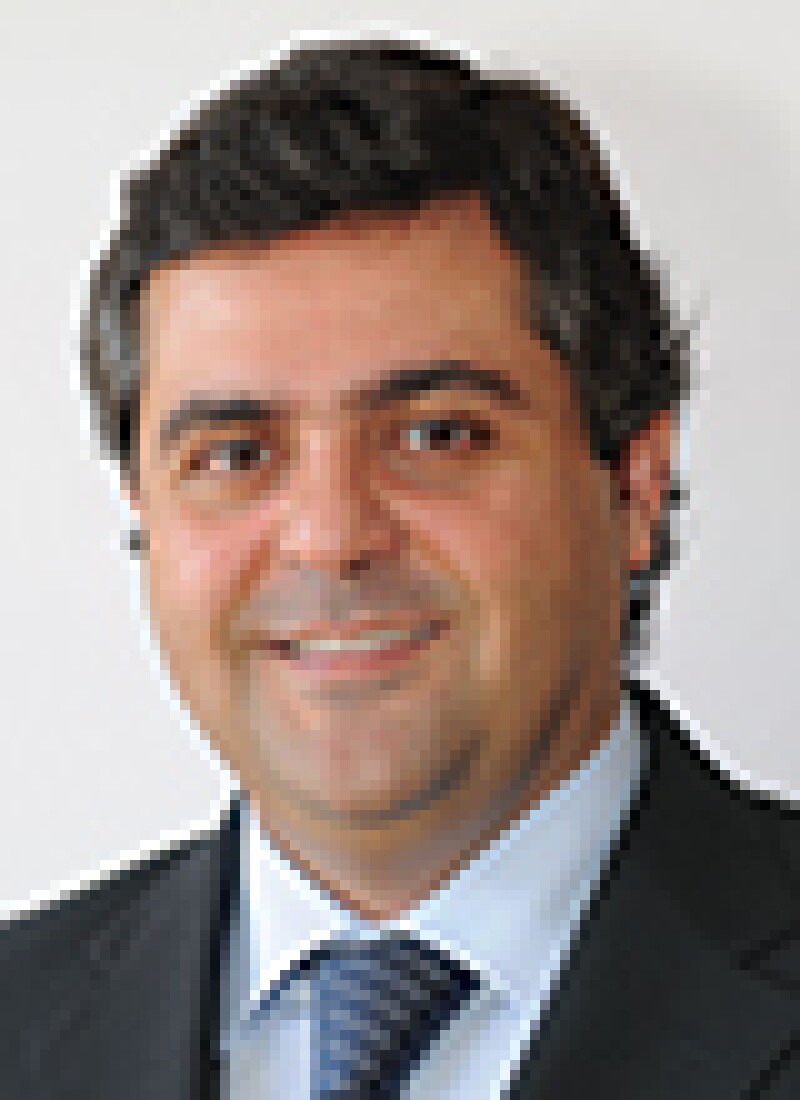SECTION 1: Market overview
1.1 What have been the key trends in the M&A market in your jurisdiction over the past 12 months and what have been the most active sectors?
The main M&A trends in Cape Verde over past 12 months reflect sound operations in both the tourism and the banking/financial sectors.
The initiation of proceedings of a huge gaming resort (hotel/luxury casino) on the islet of Santa Maria by David Chow, the president of Macau Legend Development, represents the major and most relevant deal in Cape Verde in 2016. Other meaningful tourist projects were launched in Sal and Boavista Islands.
In the banking sector, we highlight the acquisition of the majority of Cape Verde Business Bank's share capital by a consortium composed of a local insurance company and an investment company.
Overall, the M&A practice in 2016 was characterised by friendly deals due to the very concentrated ownership structure prevalent in Cape Verde.
1.2 What M&A deal flow has your market experienced and how does this compare to previous years?
In line with past-year trends, treasury bonds continue to be one of the most issued instruments in the market (71.7%) alongside treasury bills, all issued by the Cape Verde Treasury. We may also highlight the issuing of corporate bonds by ASA (Airports Management Company) worth $250 million.
In deal flow there has been an increasing growth rate of 4% resulting from the return of foreign direct investment (FDI). Compared to previous years, economic growth recovered from 3.6% in 2015, 1.8% in 2014 and 0.8% in 2013.
In 2016 tourism and tourism-related foreign investment, including construction, continued to be the factors driving growth.
1.3 Is your market driven by private or public M&A transactions, or both? What are the dynamics between the two?
The private sector is achieving an increasingly prominent role in the M&A market. Notwithstanding, the public sector maintains its relevance through the privatisation of public companies.
SECTION 2: M&A structures
2.1 Please review some recent relevant M&A transactions in your market and outline any interesting aspects in their structures and what they mean for the market.
In terms of deal structures, we have noted the use of mergers instead of spin-offs. We believe in 2017 we will also see this movement. Companies are reorganising in order to become more efficient.
2.2 What have been the most significant trends or factors impacting deal structures?
As most acquisitions are performed on a friendly basis, we point out as the most important issues to address: the compliance requirements; the potential tax implications arising from the transaction; and the fact of certain sectors, such as banking sector, require prior authorisation from the Central Bank of Cape Verde.
SECTION 3: Legislation and policy changes
3.1 Describe the key legislation and regulatory bodies that govern M&A activity in your jurisdiction.
The key legislation is the Companies Law and the Securities Code (PSC) and ancillary legislation. Depending on the companies involved, other specific laws may apply, for example financial institutions law.
It is important to underline that Cape Verde is a civil law jurisdiction and therefore the main statutes governing M&A are codified. The legal framework for M&A is the Civil Code, the Commercial Code, in particular the relevant sections of the law of contract, and the Companies Code, the key legislation for company law. In transactions involving public companies, the Securities Code is fundamental, especially concerning takeover rules.
The legal framework for M&A also comprises key topics in other areas of law, such as labour (with specific employees' protection in transfer of undertakings), tax (including on tax neutrality of certain mergers and divisions), and competition.
The General Auditor of the Securities Market (Auditoria Geral do Mercado de Valores Mobiliários, in short AGMVM) regulates public M&A, Central Bank of Cape Verde and Companies Registration Services.
3.2 Have there been any recent changes to regulations or regulators that may impact M&A transactions or activity and what impact do you expect them to have?
There have been no relevant changes.
3.3 Are there any rules, legislation or policy frameworks under discussion that may impact M&A in your jurisdiction in the near future?
The new Companies Codes that is being prepared by the government. The current Companies Code has been in force since 1999 and it is expected that the new Code will reflect the relevant international practices and modernise the business sector in Cape Verde.
We hope that the new Code will establish clearer structures for M&A, expediting and facilitating the transactions.
SECTION 4: Market idiosyncrasies
4.1 Please describe any common mistakes or misconceptions that exist about the M&A market in your jurisdiction.
Although there have been some M&A transactions, Cape Verde M&A market can be considered incipient.
Notwithstanding the civil law nature of the system, M&A legal practice in Cape Verde has been influenced by Portuguese legislation, which in turn has also some influence of common law jurisdictions.
Therefore, there are no substantive errors or misconceptions to be highlighted about the M&A market.
4.2 Are there frequently asked questions or often overlooked areas from parties involved in an M&A transaction?
As regards the legal aspects, parties ask about the structure of the transaction as prescribed by the law, the compliance with information duty, the tax implications, and about issues related with assets involved and the compliance requirements. Parties are also deeply concerned about business environment.
4.3 What measures should be taken to best prepare for your market's idiosyncrasies?
The public authorities must adopt measures that improve the business environment, in the sense of providing a more friendly and predictable relationship between public and private parties. Also, they should envisage clearer and more transparent legislation regarding ownership and governance structures of companies to create a breeding ground for M&A activity, as it is still a market under a (sustained) process of construction.
SECTION 5(a): Public M&A
5.1 What are the key factors involved in obtaining control of a public company in your jurisdiction?
Cape Verde's regulatory regime on control of a public company is regulated by the Cape Verdean Securities Code approved by Decree-Law 1/2012 of January 27. However, the General Auditor of the Securities Market (AGMVM) sets forth important regulations issued to public companies, and additional legislation imposing reporting on the acquisition of holdings in public companies in general and in particular, over companies that operate in specific business areas such as banking, media, insurance and energy.
In Cape Verde, obtaining control of a public company is usually voluntary, nevertheless in some cases it could be mandatory. The level of control selected under Cape Verdean law as the trigger for mandatory takeover legislation is 1/3 or 50% of voting power in a company.
5.2 What conditions are usually attached to a public takeover offer?
When the decision to launch a takeover bid is made, the offeror must send a copy of the preliminary announcement to the AGMVM and to the target company. The preliminary announcement must include: the offeror and target's identity; the securities that are the subject matter of the takeover; the consideration offered; a brief description of the offeror's objectives.
One of the conditions that a voluntary takeover may be subject to is the percentage of share capital that the offeror wishes to acquire through the offer. For instance, the offeror may make a partial offer, meaning that the takeover is made to acquire part of the target's shares.
Offers under a voluntary takeover must remain open for acceptance for a minimum term of two weeks and a maximum term of ten weeks. The AGMVM may, at its discretion, or at the request of the offeror, extend the offer period in case of revision of the offer consideration, the launch of a competing offer or whenever it is justified in order to protect the addressees' interests.
As the offeror may establish the terms of the takeover at his discretion, voluntary offers can be conditional or unconditional.
5.3 What are the current trends/market standards for break fees in public M&A in your jurisdiction?
Cape Verdean law does not provide a break fee rule.
SECTION 5(b): Private M&A
5.4 What are the current trends with regards to consideration mechanisms including the use of locked box mechanisms, completion accounts, earn-outs and escrow?
The offeror has discretion over the amount and type of consideration. Therefore, the consideration may consist of cash, securities, or a combination of both. In a takeover offer as a consequence of the principle of equal treatment of the addresses of the bid the price for securities of the same class should be the same.
Price clauses in share sale and purchase agreements (SPA) are usually the subject of long discussions between sellers and purchasers. The parties' freedom of contract allows for multiple solutions; SPAs establish, as a general rule, either price adjustment mechanisms, based on completion accounts, or fixed price mechanisms, including a set of provisions aimed at preserving the value of the target company until completion of the deal.
Cape Verde M&A market tends to accept naturally the modern consideration mechanism.
5.5 What conditions are usually attached to a private takeover offer?
Private takeover offers are particularly subject to the following conditions: regulatory approval; competition requirements depending on sector of activity; and consideration mechanism.
5.6 Is it common practice to provide for a foreign governing law and/or jurisdiction in private M&A share purchase agreements?
Under the parties' freedom of contract, it is common practice to choose a foreign governing law and/or jurisdiction in private M&A SPA. As a rule, the main principles of Cape Verdean law in relation to the governing law of contracts determine that contracts are governed by the law which the parties considered when executing the contract, except, for example, in case of real state or mortgages. The parties may not choose foreign law with the intent of fraudulently avoiding Cape Verdean law. Furthermore, the choice of foreign law may not offend Cape Verdean international public policy.
5.7 How common is warranty and indemnity insurance on private M&A transactions?
Warranty and indemnity insurance is scarcely used.
SECTION 6: Outlook 2017
6.1 What are your predictions for the next 12 months in the M&A market and how do you expect legal practice to respond?
Over the next 12 months, we do not predict too much variation in relation to 2016, although there is room for growth particularly in the tourism and banking sectors as we expect the launch of some world class tourist projects that could also attract the development of other sectors, such as construction.
We believe the most active sectors will be tourism and finance. Official data from the National Institute of Statistics on growth in the tourism sector in Cape Verde reveals that Cape Verde has never received as many tourists as it is receiving at the moment. The sector boasts growth forecasts both for tourist numbers and for the amount of revenue generated. This sector should also be one of the strongest drivers in the M&A market in 2017. Some projects in the energy sector are also planned for 2017, promising to be a very dynamic year.
The legal practice should follow this trend and provide more sophisticated and innovative solutions according to best international practice. The new Tax Benefits Code establishes some attractive tax benefits that will also contribute for M&A growth, for example full exemption from withholding taxes on dividends.
About the author |
||

|
|
Nelson Raposo Bernardo Managing partner, Raposo Bernardo Lisbon, Portugal T: 351 21 312 1330 F: 351 21 356 2908 Nelson Raposo Bernardo is the founder and global managing partner of Raposo Bernardo. His reference practice areas are corporate law, mergers and acquisitions, banking and finance, capital markets, project finance and private equity. He advises leading national and multinational players, in operations concerning M&A, debt, equity, structured finance and securitisation, project finance, private equity, restructuring and regulation. He has published books and articles on corporate law, banking and contract law, and participated as a speaker at seminars and conferences in Portugal and abroad. He is also strongly experienced in drafting legislation packages, being co-author of the Portuguese Securities Code, and led several legislative reform committees in several countries in the banking, financial, real estate and construction areas. He was a member of the higher commission for the approval of ad-hoc judges (2000) and consultant for capital markets to the Portuguese Auditors Association (1998-2006). He holds a degree in law and a masters in juridical sciences (corporate law) (1998) from the University of Lisbon Law School. He was assistant professor of corporate and commercial law at the University of the Lisbon Law School (1991-2006) and in entrepreneurship courses at INDEG/ISCTE (Audax) (2005-present). He is fluent in Portuguese, English, French and Spanish. |
About the author |
||

|
|
Joana Andrade Correia Partner, Raposo Bernardo Lisbon, Portugal T: 351 21 312 1330 F: 351 21 356 2908 Joana Andrade Correia co-heads Raposo Bernardo's corporate and M&A department. For over ten years, she has dedicated her work to this area, building a solid experience and notable reputation. Throughout her career she gained an extensive experience in advising relevant domestic and international operations. Her activity concentrates in corporate advisory, M&A and project finance for companies acting in different sectors such as pharmaceutical, banking and finance, tourism and energy, among others. Andrade Correia was also part of the teams drafting legislation packages for different countries by the request of local governments and the World Bank. She holds a degree in law from the University of Lisbon Law School and a post-graduate degree in business and corporate law (from Catholic University of Lisbon), in legistics (from the University of Lisbon Law School) and in tourism law (from Estoril Tourism School). She is fluent in Portuguese, Spanish, French and English. |
About the author |
||

|
|
Júlio Martins Júnior Partner, Raposo Bernardo Lisbon, Portugal T: 351 21 312 1330 F: 351 21 356 2908 Júlio Martins Júnior heads Raposo Bernardo's Cape Verde legal practice and is member of both the Portuguese and the Cape Verdean bar associations. Martins Júnior has led and been involved in major international investment projects in the Cape Verdean jurisdiction, for players in sectors in tourism and leisure, real estate, transportation, insurance and industrial production, among others. Martins Júnior has gained extensive experience in corporate law and corporate related operations, namely in what concerns sale and acquisition of shares and assets, financing operations, licensing and regulation and mergers and acquisitions. Martins Júnior also combines his corporate advisory activity with litigation. He has been part of the teams drafting some of the most recent legislation packages for Cape Verde. He holds a degree in law from the Lusophone University of Lisbon, a post-graduate in commercial contracts and a master's degree in private law, both from the Catholic University of Lisbon. |



